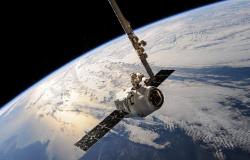Earth Observation Dependency and the Case for a New Global Norm

Earth observation (EO) satellites play a critical role in disaster preparedness and climate response, yet the majority of vulnerable nations lack direct access to this infrastructure. This essay examines how dependency on EO data from space powers poses a hidden risk in climate security governance. Drawing on international relations and postcolonial STS literature, it argues for the establishment of an international norm guaranteeing timely and equitable access to EO data, particularly during emergencies. The article proposes realistic steps toward norm-building and explores how this can address structural knowledge inequality in global environmental governance.
Policy Recommendations
- Prioritise equitable EO access in principle through recognition in a UN General Assembly resolution and integration into the post-2025 climate governance framework.
- Create a slow-onset activation window for EO support via a sister mechanism to the International Charter on Space and Major Disasters, coordinated with GEO and CEOS using objective triggers.
- Integrate EO access into climate finance mechanisms, mandating the Green Climate Fund and Adaptation Fund to cover data subscriptions, processing infrastructure, and domestic analytic capacity within funded projects.
- Embed open-data clauses in public procurement and licensing, requiring that EO data acquired with public or multilateral funding be released under open or tiered-access conditions.
- Promote regional EO cooperation through frameworks such as the African Union, ASEAN, and CELAC, supporting shared data infrastructures and collective bargaining with commercial providers.
- Create an EO Access Accountability Dashboard, hosted by the GEO, to track activation times, localisation of processing, and access equity metrics, ensuring transparency and measurable progress.
Photo by SpaceX


